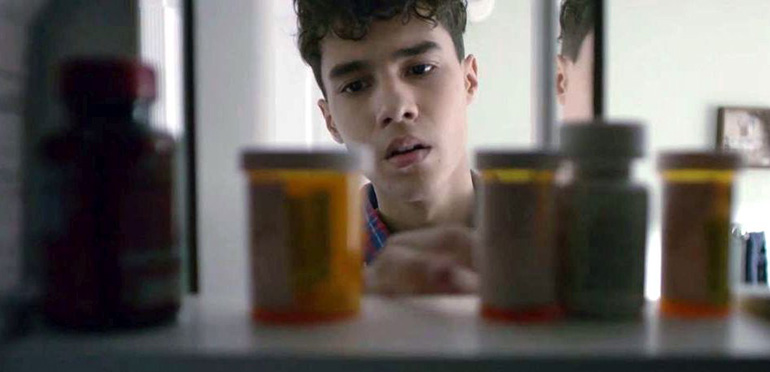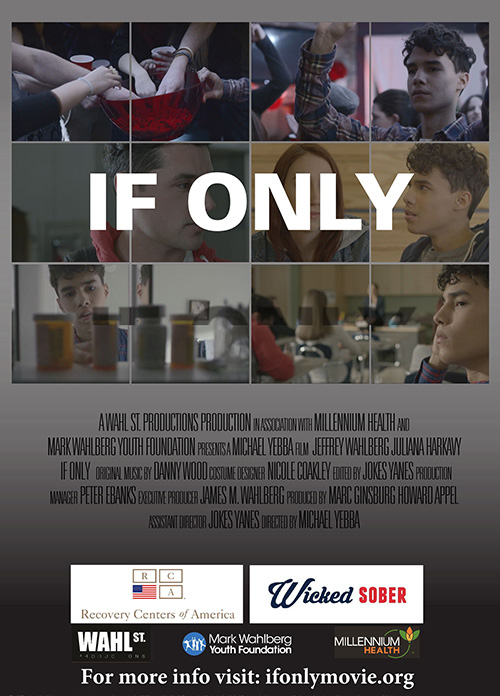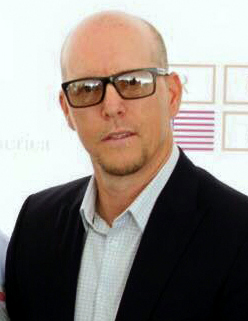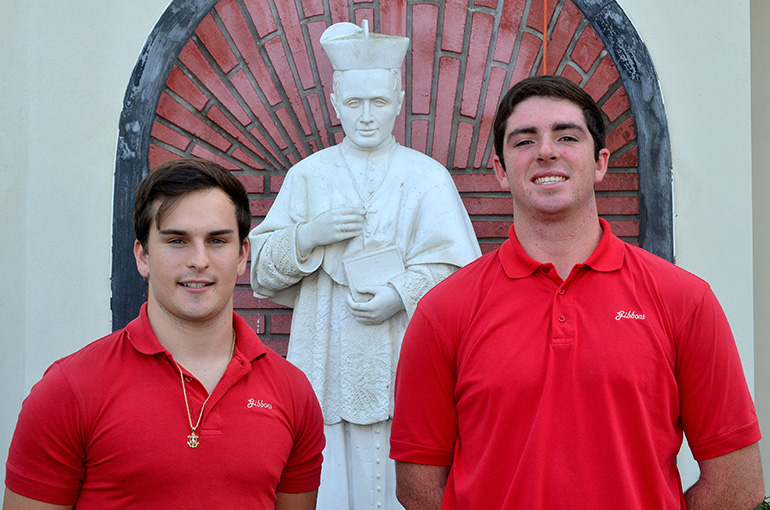By Jim Davis - Florida Catholic

Photographer: JIM DAVIS | FC
Isaac (Jeffrey Wahlberg) raids his mother's medicine cabinet in the anti-drug film "If Only," being promoted for showings at archdiocesan high schools.
MIAMI | James Wahlberg is tired of teenagers dying. Especially when the lethal weapons are so often stocked in medicine cabinets at home.
He hopes his film, making the rounds of archdiocesan high schools, will prevent a few of those deaths.
"Scroll through the obits in newspapers," said Wahlberg, who wrote and produced the film "If Only." "Look at the people under 30 who died suddenly, and not in car accidents. Those are the addicts."

Photographer: COURTESY | Mark Wahlberg Youth Foundation
Poster for the anti-drug film "If Only," being promoted for archdiocesan schools.
"If Only" dramatizes the toxic effects of drugs � not even outlawed ones like heroin, but prescription meds like fentanyl and oxycodone � on young people, based on real-life examples. The half-hour film has the blessing of archdiocesan leaders, including Archbishop Thomas Wenski, and has been shown to all of the archdiocese’s high school principals.
One school, Cardinal Gibbons High in Fort Lauderdale, has already shown it to students and parents alike � along with testimony from a student whose brother died of an overdose.
"The issue was made very real and brought you in," said Stephen Colella, director of the Secretariat of Parish Life for the archdiocese. "Nobody thinks it will happen to them, but Jim always includes witnesses afterward. That sobers up everybody."
The film has been out for about two years and been seen by about 200,000 people, according to Wahlberg, who runs the Mark Wahlberg Youth Foundation for his actor brother. Screenings have been as far flung as Maine, California and Minnesota. In Miami, Florida International University hosted one in November.
"I don’t solicit screenings � I don’t have to," Wahlberg said. “So many organizations are looking for tools to get people to come out to talk, because of the sheer magnitude of the problem."
The local showings are a natural fit for Wahlberg, who lives in Cooper City. A parishioner at St. Mark the Evangelist, Southwest Ranches, he works with neighboring churches as well. At Nativity Church in Hollywood, he helped parishioners prepare for an Emmaus retreat in October. Several years ago, he did a town hall meeting on drugs at St. John XXIII, Miramar.
As at Gibbons High, each showing includes a testimony from someone, typically a parent, who lost a family member. Then there's often a panel discussion on the issues � usually with a Catholic therapist, often a prosecutor, a mayor or police chief, and people who are in recovery.
A voice of experience
The latter includes Wahlberg: He freely labels himself a recovering addict who grew up in the lower-class Boston suburb of Dorchester.

Photographer: COURTESY | Mark Wahlberg Youth Foundation
James Wahlberg heads the Mark Wahlberg Youth Foundation.
In his neighborhood, "people died all time, with no marches or candlelight vigils," he said. "Now people are dying in more affluent places, and politicians are taking notice. I'm grateful that noise is being made, that the problem being addressed. But I'm still concerned that there is not nearly enough outrage."
It took both segments � a screening and a discussion � to affect seniors at Gibbons High in November. During the film, a few actually chuckled, joked and nudged each other, school officials said.
What grabbed their attention was the discussion period that followed � with fellow senior Garrett Blackburn telling how his older brother died of an overdose.
"Everyone went quiet, stunned," recalled Oscar Cedeno, dean of students.
Paul Ott, Gibbons' principal, said Blackburn had come to him in tears during the break between the film and the discussion. "I encouraged him to talk about it," Ott said.
As Garrett told it, when he was 11, while his family lived in the San Diego area, he found his brother dead less than a week before the brother's 16th birthday. The tragedy was among the causes for the parents' divorce, he said.
"I couldn't accept it for a couple of months," said Garrett, who came to Gibbons High in his sophomore year. "I was like, 'Why did God do this to my family?
"But something good came out of it," he continued. "Ten of his friends got clean and got jobs, and one is married. It prevented so many other deaths."
For his Gibbons classmate Paul Lawless, the takeaway was "how easily drug abuse can come on. You don’t feel trapped by it. Scary."
The worst decision
Garrett told his story again the following night after another showing of the film, with 270 parents and students in the audience.
Cedeno said he tries to impress on students the need to talk things out � even bad decisions � with parents. Especially if the missteps involve something dangerous like drugs.
"I've told them that whatever bad decision you make, nothing you do is worse than losing your life," Cedeno said.
The drugs in "If Only" aren’t identified, but Wahlberg said his biggest concern is the wave of opioid painkillers. According to an article in the South Florida Sun Sentinel, the U.S. Centers for Disease Control counted 28,647 deaths in 2014 from those drugs.
In just four cities � Orlando, Miami, Fort Lauderdale and West Palm Beach � fentanyl alone killed 165 people that year, the highest toll in Florida. "And more and more frequently, heroin is laced with fentanyl," the Sun Sentinel article said.
Initially, opioids were for people in hospice care, where addiction was not a concern. Then, Wahlberg said, doctors began prescribing them for more and more patients: plumbers, senior citizens, even children with toothaches.
Wahlberg is severe in his indictment of opioid addiction.
"A whole generation has been raised on pain meds," he said. "The drug companies have conspired against us. And they’ve turned ordinarily normal people into addicts."
His involvement with the archdiocese came through Colella, a fellow former Boston resident. Last year, Colella got him to meet Archbishop Wenski, as well as Katie Blanco, his chief development officer, and Kim Pryzbylski, superintendent of Catholic schools. They were given access codes to watch a private online copy of “If Only.”
Pryzbylski said she was impressed not only with the film, but with Wahlberg's efforts to get youths and parents to watch it together.
"I thought it was very well done," she said. "The film is probably more of an eye-opener to parents than kids. They often have parties when parents aren’t home.
"We need to educate parents as well as children," she continued. "And I think Jim (Wahlberg) accomplishes this when parents and children see it together."

Photographer: JIM DAVIS | FC
Garrett Blackburn, left, and fellow senior Paul Lawless saw the anti-drug film "If Only" at Cardinal Gibbons High School in Fort Lauderdale. Blackburn also told of the tragedy of finding his older brother dead of an overdose.

